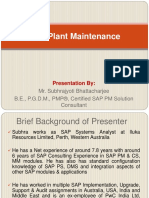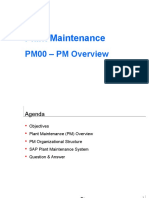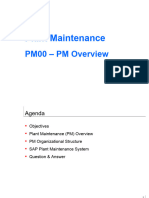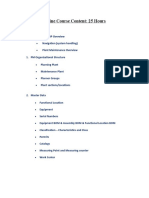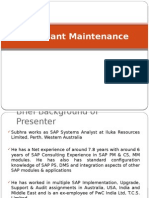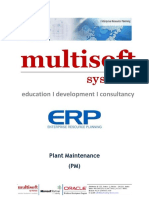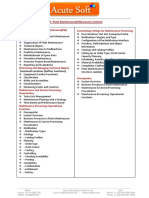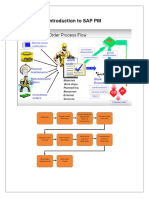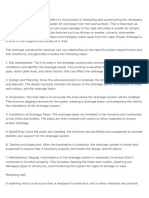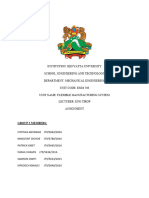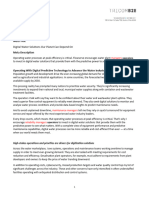Overview of SAP PM Module
1. Introduction
The SAP Plant Maintenance . Introduction
OOPS (Object-Oriented Programming System) is a programming paradigm based on the
concept of 'objects'. In ABAP, the OOPS approach is used to structure programs around
objects and their interactions. This methodology improves code reusability, scalability, and
maintainability.
2. Key Concepts of OOPS
2.1 Classes
A class is a blueprint for creating objects. It defines the properties (attributes) and methods
(functions) that objects created from the class will have. In ABAP, classes are defined using
the keyword 'CLASS'.
2.2 Objects
An object is an instance of a class. It represents a real-world entity with both data and
functionality. Once a class is defined, objects can be cr(PM) module is a critical component
of the SAP ERP system, designed to help businesses manage and maintain their physical
assets and equipment. It provides tools for planning, executing, and tracking maintenance
activities, ensuring the reliability, longevity, and efficient operation of assets throughout
their lifecycle.
2. Key Features
The SAP PM module offers a wide range of features to support effective maintenance
management, including:
- **Notification Management**: Record and track maintenance issues, such as breakdowns,
repairs, and preventive maintenance requests.
- **Maintenance Orders**: Create and manage work orders for planned, corrective, or
preventive maintenance activities.
- **Preventive Maintenance (PM)**: Plan and schedule regular maintenance activities to
prevent unplanned equipment downtime.
- **Equipment and Functional Locations**: Track and manage the installation, operation,
and maintenance of equipment at specific locations.
- **Work Scheduling**: Plan and allocate resources, labor, and materials for maintenance
activities.
- **Cost Tracking and Settlement**: Monitor costs related to maintenance tasks, including
labor, materials, and services, and settle these costs to the appropriate cost objects.
�3. Integration with Other SAP Modules
The SAP PM module is integrated with several other SAP modules, allowing for seamless
data flow and more efficient operations:
- **Materials Management (MM)**: For procurement and management of materials needed
for maintenance tasks.
- **Financial Accounting (FICO)**: For tracking and managing costs associated with
maintenance activities.
- **Human Resources (HR)**: To manage labor and resources involved in maintenance
work.
- **Plant Data Collection (PDC)**: For capturing operational data from the plant floor to
support maintenance activities.
- **Project System (PS)**: For managing larger maintenance projects and tracking project-
specific activities.
4. Benefits of SAP PM
SAP PM provides several key benefits to organizations:
- **Improved Equipment Reliability**: Preventive maintenance helps minimize equipment
failures.
- **Reduced Downtime**: Effective management and timely execution of maintenance
activities reduce unplanned downtimes.
- **Cost Control**: Tracking of maintenance costs ensures proper allocation and budgeting
of resources.
- **Enhanced Decision Making**: Data from the PM module supports informed decision-
making regarding asset lifecycle management.
- **Regulatory Compliance**: SAP PM helps maintain compliance with safety and regulatory
standards.
5. Conclusion
In conclusion, the SAP Plant Maintenance (PM) module is a comprehensive tool for
managing the maintenance needs of a company's assets. By integrating various
functionalities such as notifications, maintenance orders, preventive maintenance, and cost
tracking, SAP PM ensures the efficient and effective operation of plant facilities.














